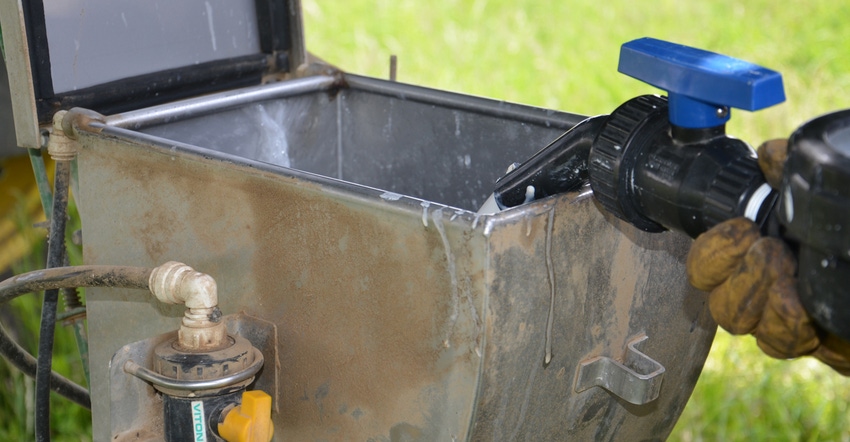
One major change in the dicamba herbicide label for 2019 and beyond is that anyone who buys, mixes, handles or applies these products must hold a pesticide applicator’s license. Previously, a person could work under someone else who held a valid license. That’s no longer allowed under federal product labels.
Dave Scott, pesticide administrator for the Office of Indiana State Chemist, has prepared an extensive Dicamba Frequently Asked Questions answer sheet. Here is information from the site regarding the new requirement:
• Certification to buy and use products. Only three dicamba herbicides are approved for use on dicamba-tolerant soybeans in 2019: XtendiMax, Engenia and FeXapan. The 2019 labels state: “Restricted Use Pesticide for retail sale to and use only by Certified Applicators.” This is a change from 2018 labels. This means that in Indiana, only fully certified and licensed private applicators, who are farmers, and commercial applicators in Category 1 can purchase or use these products during 2019 and 2020. Registered technicians and other non-certified applicators working under the supervision of a certified applicator may no longer purchase or use these products.
• Who this requirement applies to. Anyone responsible for any part of the use and application process — which includes mixing, loading, application or cleaning dicamba application equipment — must become a certified and licensed private applicator or a commercial applicator in Category 1. Workers are not required to be certified and licensed if they’re involved in nothing more than transportation of unopened dicamba containers or transportation of “hot loads” mixed by a certified and licensed applicator.
• How to become certified. Details on becoming certified and licensed are available online. You must pass a written exam to become certified. Then you must obtain the actual license, which requires submitting a license application.
• Exam details. Certification exams to obtain a private applicator’s license are offered monthly at Purdue University. Times and location are spelled out on the OISC website. There is also a website for obtaining study materials. OISC will not offer additional testing at other locations. If you need to obtain a private applicator’s license for the first time, follow details at the website or consult with your local Extension educator, Scott says.
About the Author(s)
You May Also Like




